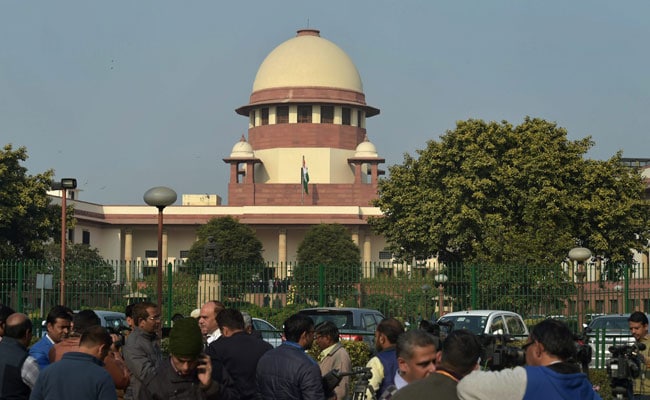
The Centre told the top court it had sought views of states as law and order was a state domain.
New Delhi:
The Centre on Wednesday told the Supreme Court that it was bringing a law to make honour killing a cognisable offence as it sought directions for prompt police action and criminal prosecution of the guilty.
The Centre told a bench of Chief Justice Dipak Misra, Justice A M Khanwilkar and Justice D Y Chandrachud that they had received comments and views of 23 states on the proposed bill, "The Prohibition of Interference with Freedom of Matrimonial Alliance Bill".
"The term Honour Killing is neither separately defined, nor separately classified as an offence under the prevailing laws in India. It is treated as a murder as defined under Section 300 of the Indian Penal Code punishable under Section 302 of the Code," the central government told the court explaining the necessity of a separate law to deal with offence of honour killing.
The court was told that the remaining states had been reminded to give their comments at the earliest.
The Centre told the top court that it had sought the views of the states as law and order was a state domain.
However, the Centre told the court that pending the legislation, it may pass direction mandating police to act promptly to prevent the crime of interfering with couples who decide to marry or have already married on their own.
"Police must protect the couple under fear of physical annihilation by housing them in protection home or by any other means as they may fit."
The Centre urged the court to direct that there shall be a special cell in every district for receiving complaints from couples fearing physical annihilation.
The court on Wednesday reserved its verdict on a plea by NGO Shakti Vahini seeking its intervention to curb the phenomenon of 'honour killing' and violation of human rights by Khap Panchayats to protect the dignity of consenting adults wishing to marry.
The court reiterated that whatever the caste, creed or religion of two consenting adults choosing to marry, no third party can interfere.
On February 5, the court said that Khap Panchayat cannot act as conscience keeper of the society.
The Centre told a bench of Chief Justice Dipak Misra, Justice A M Khanwilkar and Justice D Y Chandrachud that they had received comments and views of 23 states on the proposed bill, "The Prohibition of Interference with Freedom of Matrimonial Alliance Bill".
"The term Honour Killing is neither separately defined, nor separately classified as an offence under the prevailing laws in India. It is treated as a murder as defined under Section 300 of the Indian Penal Code punishable under Section 302 of the Code," the central government told the court explaining the necessity of a separate law to deal with offence of honour killing.
The court was told that the remaining states had been reminded to give their comments at the earliest.
The Centre told the top court that it had sought the views of the states as law and order was a state domain.
However, the Centre told the court that pending the legislation, it may pass direction mandating police to act promptly to prevent the crime of interfering with couples who decide to marry or have already married on their own.
"Police must protect the couple under fear of physical annihilation by housing them in protection home or by any other means as they may fit."
The Centre urged the court to direct that there shall be a special cell in every district for receiving complaints from couples fearing physical annihilation.
The court on Wednesday reserved its verdict on a plea by NGO Shakti Vahini seeking its intervention to curb the phenomenon of 'honour killing' and violation of human rights by Khap Panchayats to protect the dignity of consenting adults wishing to marry.
The court reiterated that whatever the caste, creed or religion of two consenting adults choosing to marry, no third party can interfere.
On February 5, the court said that Khap Panchayat cannot act as conscience keeper of the society.
Track Latest News Live on NDTV.com and get news updates from India and around the world

